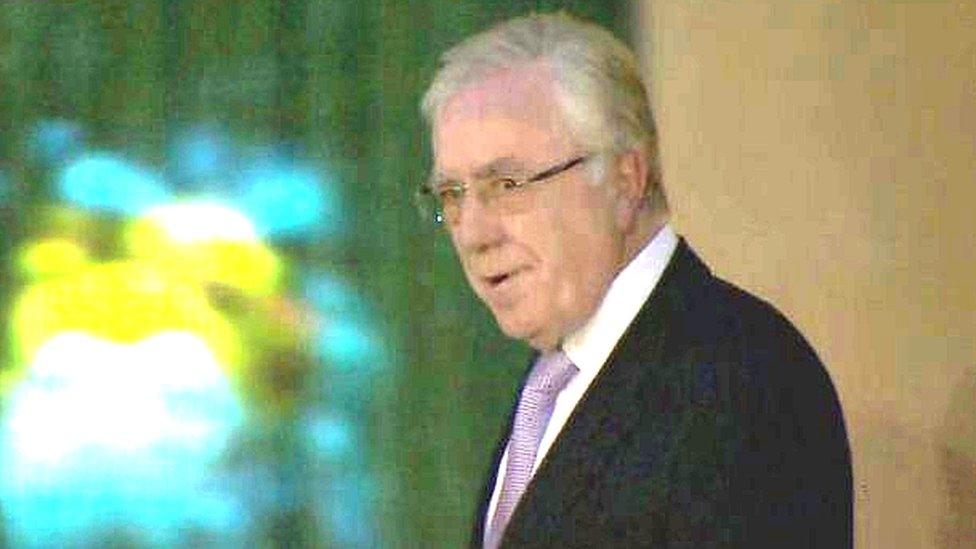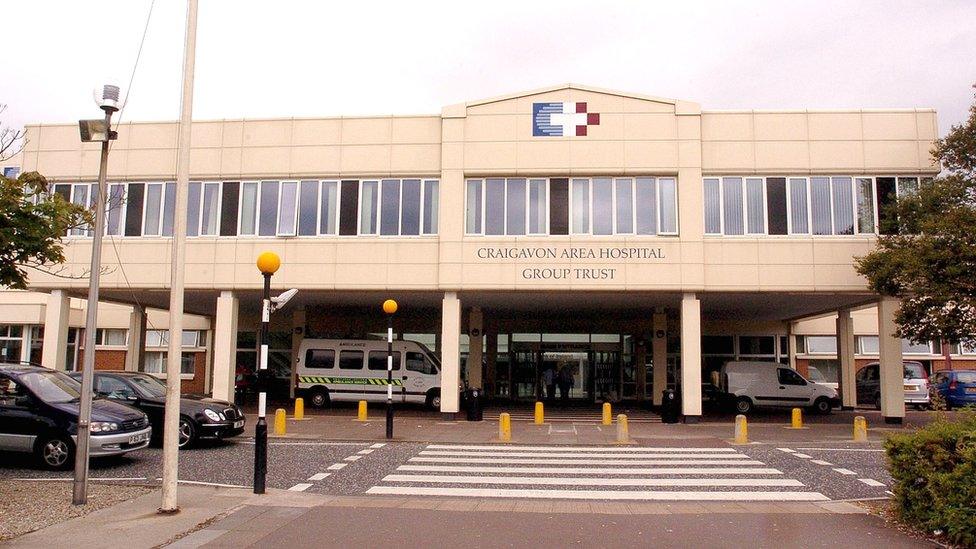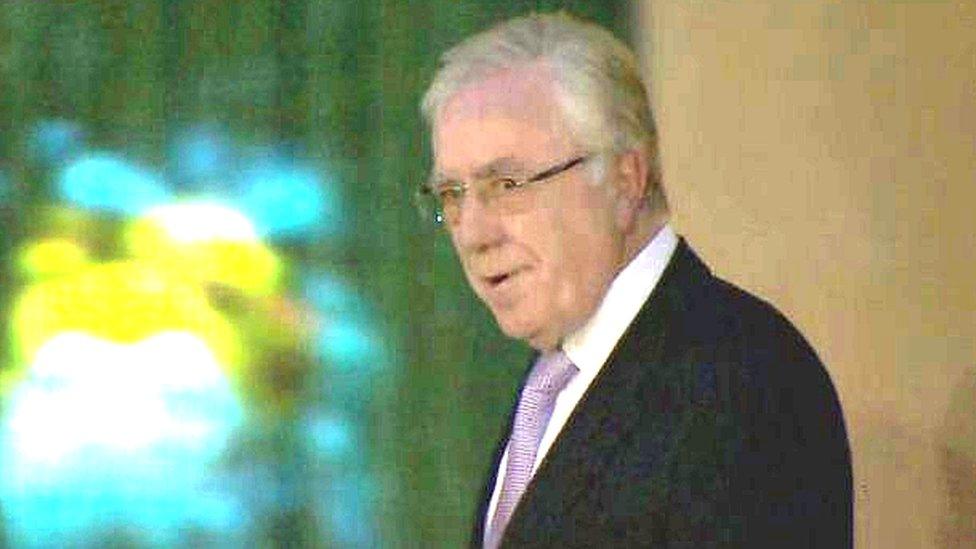Urology inquiry: O'Brien triage failures 'led to 24 red-flag referrals'
- Published

Aidan O'Brien worked at the Southern Health Trust from 1992 until his retirement in July 2020
Failure to triage almost 800 urology referrals in the Southern Health Trust led to 24 patients being upgraded to red flag referrals, an inquiry has heard.
It emerged during the third day of a public inquiry into work of consultant urologist Aidan O'Brien at the trust.
A further five people received a late cancer diagnosis due to the failures.
Mr O'Brien previously claimed the trust provided an "unsafe" service and was trying to shift blame on to its medics.
The former urologist told an investigation that between 2015 and 2016 he "didn't have the time to triage" and that he was "surprised that the number of cases upgraded was so small".
The inquiry also heard that Mr O'Brien's private patients were given "advantageous" treatment over health service patients.
On Thursday, the barrister representing the trust said it apologised "sincerely, unequivocally and publicly" to affected patients and their families, the public as well as health staff who "work beyond the call of duty" every day.
"The trust wishes to state in respect of any cases where harm has occurred that ought to have been avoided, its clear commitment to meeting any resultant claims," he said.
Private patients given priority
Dr Neda Chada, who was appointed by the trust to conduct an investigation into the consultant's work, found that 11 private patients under Mr O'Brien's care had completed their procedures within "much shorter timeframes" than expected for NHS patients given their clinical priority.
Another doctor, who carried out an additional review, also found there was "no clinical justification" to support nine out of the 11 patients' treatment within such a short time frame.
The inquiry heard that Mr O'Brien disputed the treatment dates and rejected the suggestion that he had been "improperly advantaging private patients".
But after reviewing the notes, Dr Chada concluded all nine private patients had "each been scheduled earlier than their clinical needs dictated".
She also concluded Mr O'Brien had afforded them advantages over health service patients with the same clinical priority.

Urology consultant Aidan O'Brien worked at Craigavon Area Hospital before his retirement in July 2020
On Thursday afternoon, Gerard Boyle KC, counsel for Mr O'Brien, said the inquiry should consider why the urology service had been so seriously under-resourced for decades and why the trust did not obtain and supply additional support.
He asked if anything had improved since Mr O'Brien left the employment of the Southern Trust.
"If improvements have now been made, why did that not happen sooner, many, many, many years ago?" he added.
"Mr O'Brien, as you know, has attended each day of the patient hearings to listen to the accounts that the patients and their families have given in relation to the circumstances that you are considering.
"His focus throughout his entire professional life has been to do his best for all of his patients, notwithstanding the circumstances.
"He fully and frankly acknowledges the difficulties and the concerns that have been raised in the context of the investigation so far and this inquiry."
Earlier, counsel for the inquiry, Martin Wolfe KC, said the trust's investigation also found that the storage of 307 sets of patient notes at the consultant's home was "excessive and outside normal acceptable practice".
Mr Wolfe added it constituted a "serious data protection information governance risk" for the trust.
Mr O'Brien had told the investigation that the trust had "not developed a system for either tracking notes or had they sought to determine the extent of the problem prior to the investigation".
The inquiry also heard of a catalogue of problems including undictated clinic notes dating back to November 2014 which affected 668 patients.
A review look back took six months to complete.
There had been "multiple attendances" without reciprocal letters on patient's files, delays in sending letters to patients and cases in which no entries had been made on patients' charts.
Additionally, Mr Wolfe said that the inquiry may have to consider along various lines which senior managers within the trust knew what and when.
In her investigation, Dr Chada found that there were "earlier opportunities" where those within the health trust could have added concern about Mr O'Brien's work prior to 2016.
These opportunities were not taken in a consistent, planned or robust manner, she added.
On Wednesday, the inquiry heard that Mr O'Brien had left a 6.5cm swab in a patient after surgery and failed to identify it in a scan three months later.
It was also told that almost 600 patients received "suboptimal care" from Mr O'Brien's clinical practice.
Related topics
- Published9 November 2022

- Published8 November 2022

- Published24 November 2020
